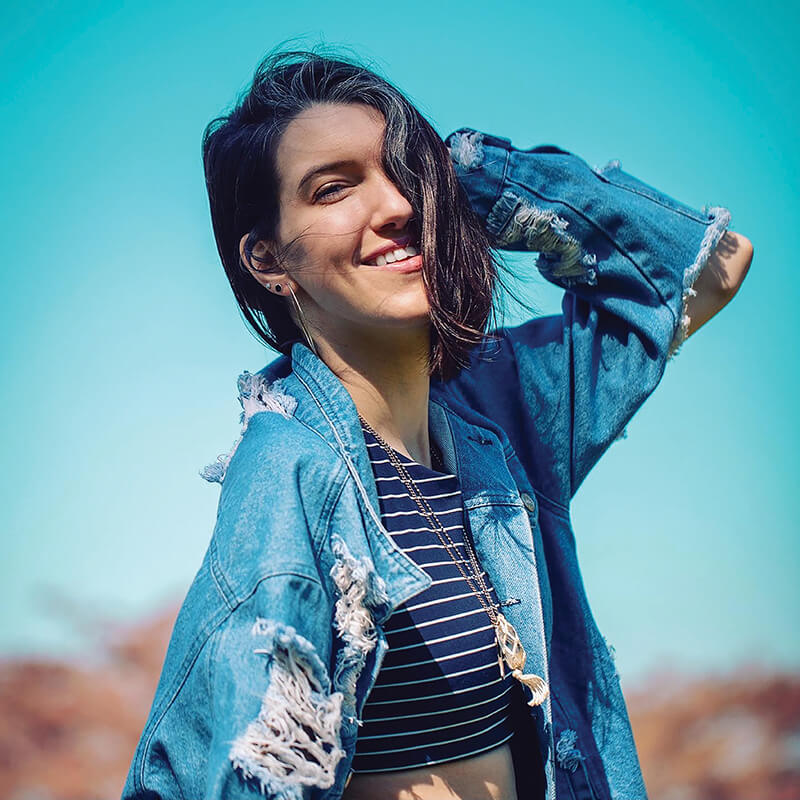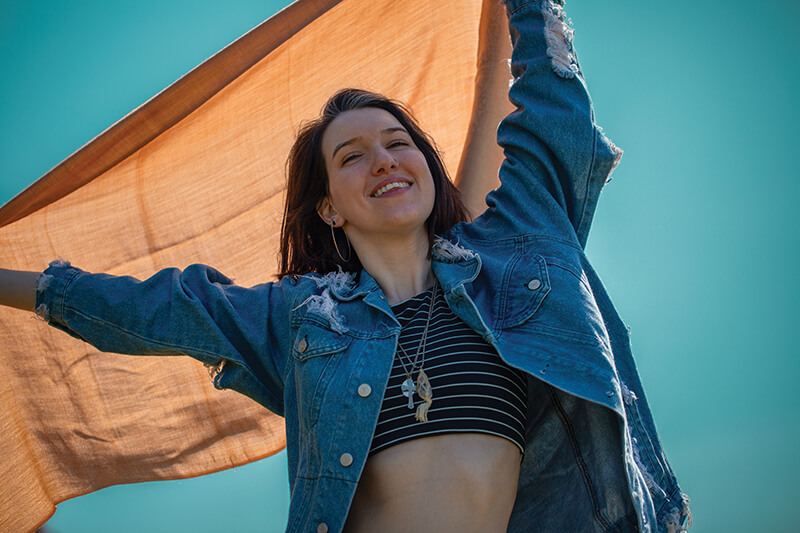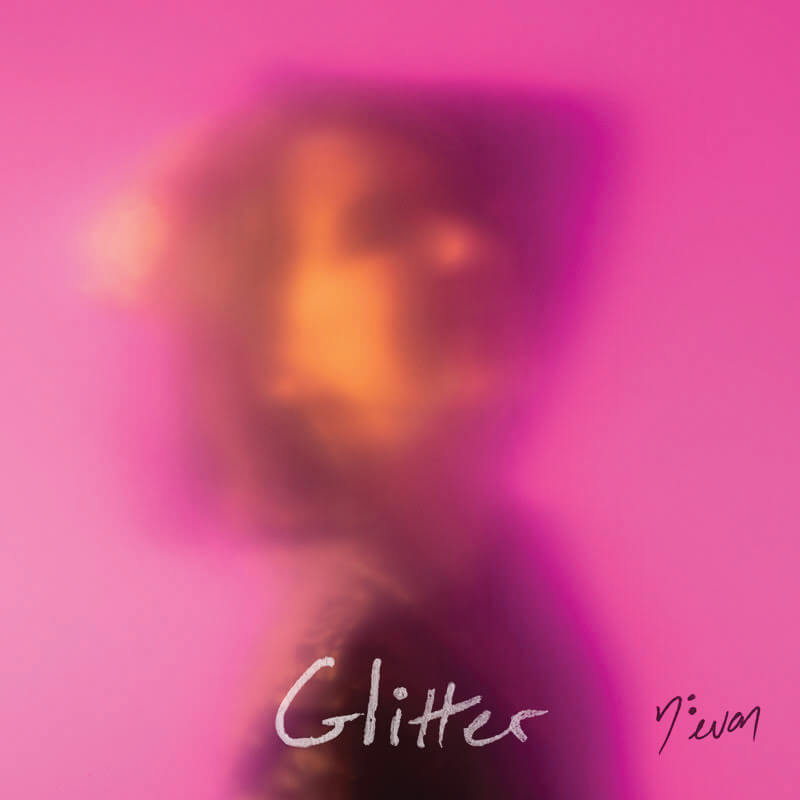We first got to know Devon through a series of videos we worked on together in conjunction with Harman, showing off how AKG and JBL products could be used in the home studio to create a fresh new track from scratch. That track happened to be the wonderfully infectious “Glitter,” and those videos led us here. Getting to know Devon throughout the video project, we just had to go on a deep dive with her, and make sure our readers knew all about her, as well.
So, enjoy our conversation with Devon, and if you haven’t checked out that video series yet, head on over to our YouTube channel and social media pages and give them a watch – we also recently premiered “Glitter” at performermag.com – so be sure to hear the final track now that it’s done (thanks again to Harman for the gear hookup), you won’t regret it! You can also listen to the full, extended interview as part of the latest episode of the “Performer: On Record Podcast,” available on your favorite podcast service right now.
It would be great to get a little background on you as an artist – where do you come from and how did you first get into music?
Sure, I was born and raised in the suburbs of Philadelphia, and from a young age I always made music. My dad plays piano, my brother plays guitar, so I’ve always been surrounded by music and I’ve always loved it. I play guitar and piano…I think when I was four years old my family took me to my first concert; they took me to see Billy Joel.
Wow, that’s a pretty good first concert!
I remember being a little kid seeing Billy Joel on stage, thinking ‘Yes, I want to do that!’
So, did that cause you to start piano?
I think I started [piano and guitar] at the same time, because my brother always wanted me to play guitar with him and my dad wanted to teach me piano. So, I kinda learned both from an early age.
Did you take formal lessons, were you self-taught or was it just a family thing?
I’ve taken formal lessons off and on throughout my whole life…but we were never playing music that I wanted to play. It was always very classical focused. I found that my best learning method was [self-taught], playing along to stuff I loved and trying to [play along].
Gotcha.
That was really when I started improving — when I started playing music I actually enjoyed.

When did the vocals come along, was that around the same time?
I have always been trying to sing [laughs]. I didn’t realize this, but my mom says when I was little, I was completely tone-deaf…I thought I was great! [laughs] I remember coming home at four telling my mom I didn’t like school and I wanted to become a singer, and she was like, ‘You’re four years old! You have to stick with it a little longer.’ Ever since then, my mom was putting me on and off in voice lessons, and I kept on quitting because I was like, ‘I got this, I’m so good at singing [laughs]!’ And my mom would be like, ‘Well, let’s try another teacher….’
At some point, I learned how to hold a tune…
Well, I think there’s something to say for self-confidence in an artist, wouldn’t you?
For sure, I didn’t give up on it. If I had known I was bad, I would have given up. [laughs]
On the timeline, at a certain point I would imagine songwriting enters the picture. When does that start occurring?
I have always been writing and trying to write songs since I was a little kid, but I think it was in middle school when I started enjoying poetry, so that’s when I started thinking about lyrics and listing to a lot of Counting Crows and Joni Mitchell and Sara Bareilles and trying to tell a story through song.
And that’s my main focus to this day; I think lyrics are so beautiful and so powerful.

So, when you sit down to write a song now, is it primarily lyrics-based first?
Songwriting for me has always been very lyric-driven. These days I produce all my own music, too, and I’ve been experimenting with more synth-based and electronic productions. I occasionally now do sit down and make a track first and see what lyrics and melody come after that. But throughout my whole life it’s always been lyrics-driven first; and not even melody-driven, it’s always been poetry and then building a track around that to help support the idea of the story.
So now, how do you find that process, creatively, when you start with the track first?
I’m pretty relieved when it works [laughs]. I started making tracks for the EP I put out last year and the new one I’m putting out this year. The two EPs are related, they’re kind of a series, and I mostly started with the tracks first. I was kinda nervous that I’d come up with tracks I really loved and wouldn’t be able to come up with lyrics or melodies to do them justice.
But it all worked out, I came up with the tracks and I felt very inspired by them. I have a running list of lyric ideas, and I listened to the tracks and picked out the [ones] that resonated with me.
Do you think you’ll stick with this method of writing, or will you go back to a move lyric-driven creative process?
I think, for me, this is the way I’ll do it for the foreseeable future. Because even though I did love my old songs and the old approach, I think for a wider appeal, I’m the only person who puts this much weight on the lyrics [laughs]. I think everyone else enjoys the production and wants the song to feel good. And when I start with lyrics first, my production may not feel as cohesive for the entire project.

This approach works better for communicating to people who might just want to feel the music.
Does that disappoint you that so many people don’t listen as closely to the lyrics?
I can see how it would be, but honestly, I’m excited whenever anyone finds any aspect of my songs that bring them joy. I’m happy to be able to provide that, and even if they don’t like the lyrics or don’t listen to the lyrics, if they enjoy the song, as long as they listen to it enough times, they’ll get it.
And if not, I’m glad they could dance to it [laughs].

